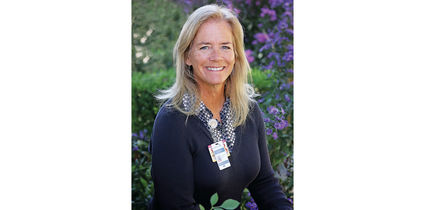Looking toward a healthier 2020? Here's three go-to tips from a local dietitian
February 15, 2020
New Year Resolutions are always made with the best of intentions.
People typically want to get healthier, lose weight and start working out. Unfortunately, it's around this time each year that people begin to forget about those resolutions either because they don't see immediate results, or their goals are too rigid and unrealistic.
They don't have to be.
As a registered dietitian who sees this happen annually, I invite my clients to rethink their resolutions and shift from rigid goals – like losing a few pounds each week to something with a bit more flexibility. I encourage my clients to stop restricting and depriving themselves, and instead, focus on habits that will give them more enjoyment, more time with family and more healthy years. Here are some attainable goals I believe will make 2020 a healthier year:
More plants
In the South, where I grew up, the two primary food groups were: meat and potatoes. Vegetables were the sideshow, and sometimes they didn't show up at all.
I appreciate that food represents more than simply sustenance. It is also rooted in our culture, traditions, and memories. Those are important, too. I'm just suggesting we, as a society, add more plants to our day-to-day eating.
I'm not preaching for anybody to give up the foods they love – and I don't promote conventional, short-lived diets. My philosophy is that all foods fit – but they should fit into a balanced diet. Working more plants into meals assures that our bodies are getting the nutrients they need.
Take fiber, for example. Dietary guidelines suggest that we need 25 to 30 grams of fiber daily. Americans eat an average of fewer than 10 grams daily. Adding more vegetables to your diet can help tip those scales in the right direction, which has long-term impacts, like a healthier colon, lower blood pressure, lower cholesterol, lower risk for cardiac events and even certain cancers.
I love this goal because you're not restricting anything – you're adding more food to your diet. Eat, but make the conscious decision of adding more whole foods to your plate. Stick to whole-grains (yes, carbs are OK), fresh vegetables and fruit.
With booming popularity of vegetarian and vegan diets, grocery stores are offering a huge variety of frozen alternatives. Items like broccoli tater tots and vegetable-based pasta come to mind. They're creative ways to incorporate more vegetables into our meals, and these convenience foods have a place. Do not get bogged down on thinking everything has to be fresh, organic or homemade. Keep it simple, just aim to eat more plants! Fresh, frozen or canned all count toward this goal.
Start with intentionality. Consciously put vegetables on your plate during lunch and dinner. And when it comes to portion sizes with vegetables, don't worry, it's rare to have too many.
More movement
When it comes to working out, burn-out can happen – especially if you've set a rigid resolution to work out hard and are starting without much fitness.
You do not need a gym membership to be healthy. Simply focus on moving more. Walking, swimming and cycling are excellent low impact activities to incorporate into your lifestyle. The evidence we have now shows that even just 150 minutes of moderate movement a week pays dividends for our bodies.
So, find ways to incorporate that activity into your life. Explore the beauty of local hiking trails with family, opt to walk or ride your bike to the grocery store, take short walks during your breaks from work. However you choose, just move more.
More mindfulness
Mindfulness has been tossed around as one of those "new age" terms, but to me, it's really all about focus. It's about being present and intentional, and that helps with any goal you may have.
Emerging studies show how mindfulness and gratitude can help us rewire our brains and put us in a mindset of being able to change lifestyle habits for the better. The daily practice of meditation has been shown to have tremendous value. Try a free meditation phone app to guide you on a short meditation each day. Mindfulness can be as simple as taking a moment from your day to appreciate your life or your surroundings.
So, the next time you're on a walk or preparing a meal, take a moment to appreciate your life and be grateful for the healthy path you're creating for yourself.
Wishing each of you a happy and healthy 2020. Remember, move more, sit less, eat more plants and appreciate it all as you go along!
Kathy Ostrem is a senior registered dietitian and diabetes educator at Adventist Health Tehachapi Valley. She can be reached at ostremkl@ah.org.




